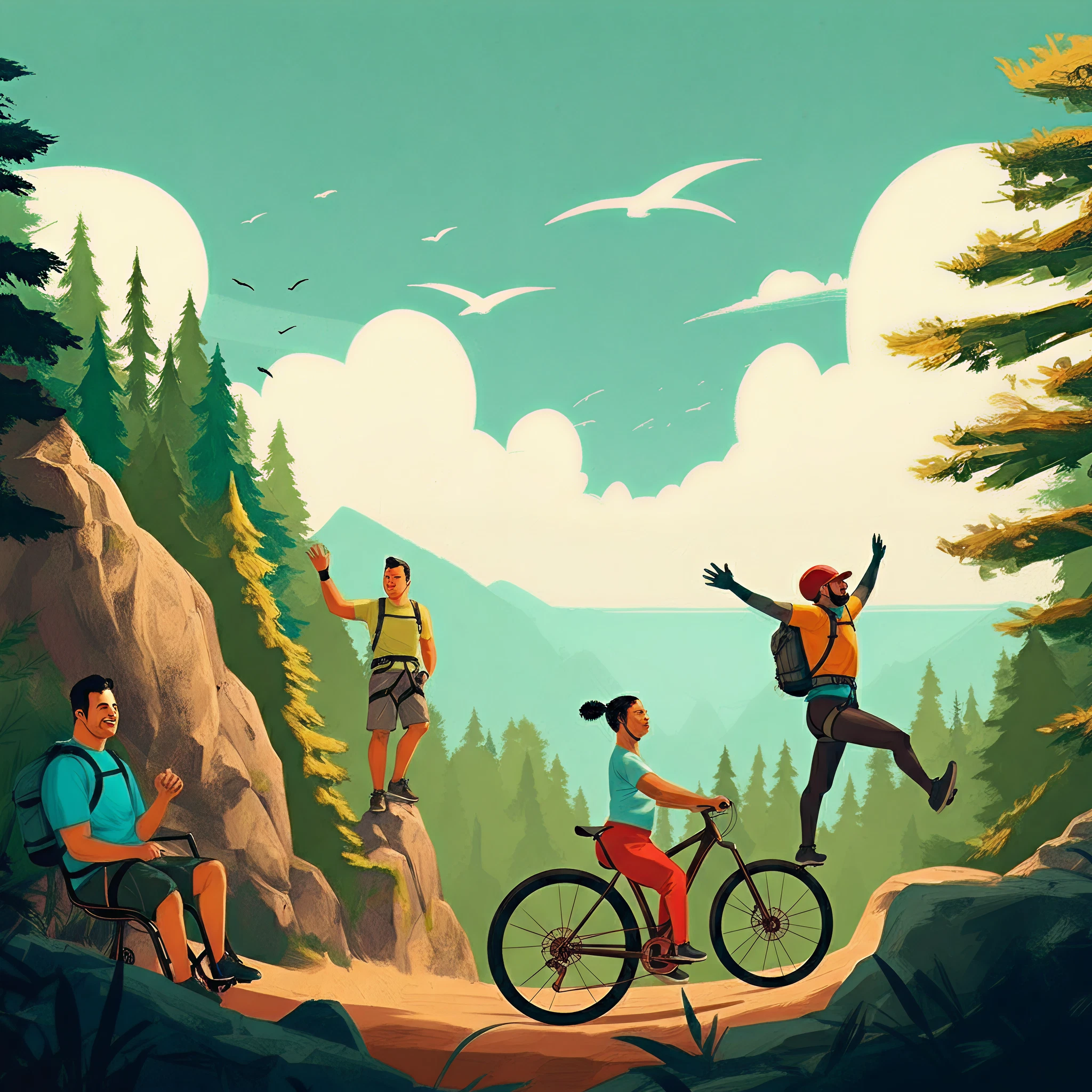Active recreation is more than just a fun way to spend leisure time. Engaging in activities like hiking, swimming, or biking can transform both your physical and mental health. Whether you’re a professional juggling a busy schedule or someone just looking to add excitement to your days, active recreation has something for you.
This article explores the benefits of outdoor activities, from boosting physical health to fostering mental clarity, and guides you on how to incorporate these practices into your routine.
What Active Recreation Means
Active recreation refers to engaging in physical activities during your leisure time. Unlike sedentary hobbies like reading or knitting, active recreation involves movement and effort, which can range from low-intensity walks to high-energy activities like rock climbing. The key here is combining fun with physical exertion, making it an enjoyable way to stay healthy.
Why Active Recreation Matters
For many, finding balance in the hustle and bustle of daily life can feel daunting. Active recreation offers numerous benefits that go beyond fitness. Here’s why it matters:
1. Physical Well-Being
Regular engagement in physical activities like jogging, cycling, or dancing improves cardiovascular health, strengthens muscles, and enhances flexibility. It can also aid in maintaining a healthy weight and reducing the risk of chronic illnesses, such as diabetes or heart disease.
What’s more, staying physically active improves stamina, making day-to-day tasks feel easier. Improved fitness also increases energy levels, leaving you feeling more vibrant throughout the day.
2. Mental Health Benefits
Active recreation is a proven way to reduce stress, combat anxiety, and improve overall mood. Physical activity triggers the release of endorphins, also known as «feel-good» hormones, which can enhance your sense of well-being. Outdoor activities like hiking or kayaking expose you to nature, further boosting mental clarity and promoting relaxation.
Regularly engaging in recreational activities can also improve sleep quality, increase focus, and build resilience against life’s challenges.
3. Social Connection
Many recreational activities are naturally social, whether you’re joining a local gym class or going hiking with friends. These interactions foster a sense of community and belonging while strengthening relationships. For some, team-based activities provide additional benefits, including enhanced communication and collaboration skills.
Types of Active Recreation
Now that we’ve explored why active recreation is important, let’s look at a few examples that you can try.
- Hiking and Walking
Accessible and beginner-friendly, hiking and walking offer the perfect way to explore nature while staying fit.
- Swimming
This low-impact activity is perfect for improving cardiovascular health and strengthening muscles without putting stress on your joints.
- Cycling
Whether outdoors on trails or indoors on a stationary bike, cycling is a versatile way to get your heart pumping.
- Team Sports
Joining recreational leagues for sports like soccer, volleyball, or even basketball can keep you motivated and connected.
- Yoga or Dance
For those looking for a mix of art and fitness, yoga and dance classes offer emotional benefits alongside physical activity.
Tips to Incorporate Active Recreation Into Your Routine
Building active recreation into your life doesn’t have to be complicated. Here are a few steps to help you get started:
- Choose Activities You Love
Pick activities that genuinely excite you so that staying active becomes an enjoyable part of your routine.
- Schedule It
Allocate dedicated time for active recreation in your week, just as you would for meetings or errands.
- Set Small Goals
Gradually work your way up to bigger milestones. For example, start with a 15-minute walk each day and slowly increase your pace or duration.
- Get Social
Invite friends or family members to join you, or participate in group classes to stay motivated.
- Invest in Quality Gear
Having the right shoes, clothing, or equipment can make any activity more enjoyable and effective.
Active Recreation and Personal Growth
One often-overlooked benefit of active recreation is the confidence and self-determination it fosters. Achieving personal fitness milestones or mastering new activities reinforces your ability to tackle challenges in other areas of life.
It also provides an opportunity to explore new interests and environments, which can enrich your life experiences and overall outlook.
Start Reaping the Rewards
Active recreation is much more than a hobby. It’s an investment in your physical and mental well-being, as well as an opportunity to deepen social connections and build an active lifestyle you love.
If you’re new to this, start small and stay consistent. Whether it’s taking a weekend hike, joining a swimming class, or sparking joy with dance, you’ll be amazed at the difference it can make.
Make active recreation a priority—not just for the physical benefits but for your overall quality of life.
Get moving today and take the first step toward a healthier, happier you!








